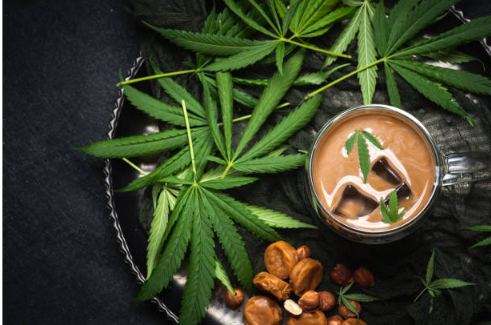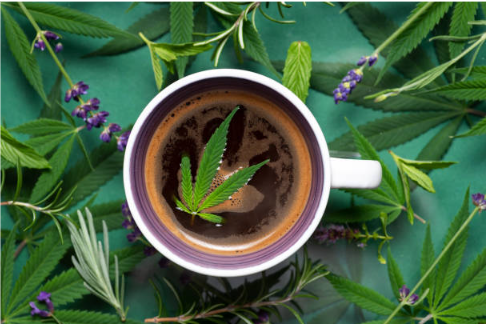
Source: Gettyimages
Cannabis and caffeine are two of the most widely used substances worldwide. While caffeine is commonly associated with energy, focus, and social interaction, cannabis is increasingly used for relaxation, creativity, and stress relief. Both influence the way people communicate and manage stress, but in very different ways.
Understanding how these substances affect the body and mind can help adults make more intentional choices. Caffeine often stimulates alertness and productivity, while cannabis provides the opposite effect by encouraging calmness and easing tension. Incorporating convenient access through weed delivery Meadowview into this routine highlights how adults can easily integrate cannabis while still focusing on balance, moderation, and wellness.
This article compares cannabis and caffeine to understand their unique effects on communication styles and stress levels.
Communication and Cannabis
How Does Cannabis Influence Social Interaction?
Cannabis often promotes relaxation, which can make some people feel more open in conversations. Low to moderate doses of THC or CBD may reduce social anxiety and create a sense of ease. However, high doses of THC can sometimes impair speech clarity or make users more withdrawn.
- Cannabis can reduce social tension for people with anxiety.
- CBD-dominant strains may enhance calm communication without intoxication.
- High THC levels can lead to slower responses or difficulty staying focused in group discussions.

Source: Gettyimages
Communication and Caffeine
Does Caffeine Improve Conversation and Focus?
Caffeine is known to increase alertness and energy, making it easier to stay engaged in conversations. It can sharpen focus, speed up verbal responses, and encourage productivity in group settings. However, too much caffeine may cause jitteriness or restlessness, which can make communication feel rushed or pressured.
- Moderate caffeine enhances attentiveness and verbal fluency.
- Social activities like coffee meetups are built around caffeine consumption.
- Overconsumption can make interactions feel anxious or scattered.

Source: Gettyimages
Stress Relief With Cannabis
Can Cannabis Reduce Stress Effectively?
Yes, cannabis has been shown to reduce stress by interacting with the body’s endocannabinoid system. CBD in particular is studied for its anxiolytic effects, while THC may provide short-term relaxation when used moderately. Overuse, however, can lead to paranoia or dependence for some individuals.
- CBD reduces stress without intoxication.
- Low THC doses may help calm nerves after a long day.
- Heavy or frequent use may cause the opposite effect and increase stress.
Stress Relief With Caffeine
Does Caffeine Help or Worsen Stress?
Caffeine stimulates the central nervous system, which can temporarily boost energy and focus. However, it also increases cortisol, the stress hormone, which may heighten anxiety in sensitive individuals. For some people, caffeine provides a short burst of energy, but over time, it can amplify stress.
- Moderate doses improve alertness and reduce fatigue.
- High doses may increase stress levels and cause irritability.
- People with anxiety disorders may find that caffeine worsens symptoms.
Lifestyle Integration
Which Fits Better Into Daily Routines?
Caffeine is deeply integrated into daily routines, from morning coffee to social coffee shop meetings. Cannabis, while increasingly accepted, is more often used intentionally for relaxation or before bedtime. The right choice depends on whether someone values stimulation or calm in their daily lifestyle.
- Caffeine aligns with productivity-driven lifestyles.
- Cannabis aligns with stress management and wellness-focused routines.
- Some adults use both caffeine in the morning and cannabis at night to balance energy and relaxation.

Source: Gettyimages
Long-Term Considerations
What Are the Health Impacts of Long-Term Use?
Both cannabis and caffeine can influence long-term health in unique ways. Long-term heavy caffeine use may lead to sleep disturbances, dependency, and elevated blood pressure. Long-term cannabis use may affect memory, motivation, or lung health when smoked, though CBD is generally considered safe.
- Caffeine is generally safe in moderation, but should not replace rest.
- Cannabis may support sleep and stress relief, but requires mindful use.
- Responsible, moderate consumption is key for both.
FAQs About Cannabis vs. Caffeine
Is Cannabis Better Than Caffeine for Stress?
Cannabis may be more effective for stress relief, especially with CBD-rich products, but caffeine is more effective for focus and energy. Resources from services like Fiori Delivery often highlight how product type and dosage can influence stress management.
Can Cannabis Replace Coffee for Social Interaction?
For some, yes. Cannabis can ease social anxiety, but caffeine typically boosts energy and quickens conversation.
Which Has Fewer Side Effects?
Moderate caffeine usually has mild side effects like jitters, while cannabis may cause short-term memory issues or paranoia at high doses.
Can Cannabis and Caffeine Be Used Together?
Some adults combine them, using caffeine in the morning and cannabis at night, but it is best to monitor how the body responds.
Conclusion
Cannabis and caffeine each influence communication and stress differently. Caffeine promotes energy and quick conversation but may increase stress when overused. Cannabis encourages relaxation and can ease anxiety, but may slow down communication at higher doses.
For adults, the choice depends on lifestyle needs, whether the goal is productivity and alertness or stress relief and calm.
If you are exploring cannabis as part of your wellness routine, consider mindful use and consult with a healthcare provider to ensure it aligns with your health goals.